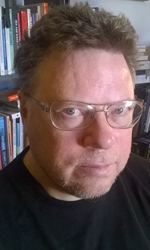Does Disability Studies have Anything to Say to Music Therapy? And Would Music Therapy Listen if it Did?
DOI:
https://doi.org/10.15845/voices.v14i3.794Keywords:
disability studies, music therapy, medical model, social model, disabling professions, disability artsAbstract
In this article I enquire whether a worthwhile dialogue might be entered into between the disciplines of disability studies and music therapy. Considering disability studies alongside feminist theory, I ask whether insights from disability studies can be incorporated within music therapy education and practice. A comparative exploration of the roots and visions of both disciplines, along with a discussion of music therapy's struggle to establish an identity as a clinical profession, leads me to suggest that there are fundamental rifts which would make a constructive dialogue difficult. I draw on perspectives developed by disability studies theorists who have critiqued the development of disabling professions and discuss some examples of disability arts practice to highlight the philosophical differences dividing these two projects. I conclude by suggesting that music therapy realigns itself as a profession allied to the community rather than as a profession allied to medicine.
Downloads
Published
2014-10-20
How to Cite
Cameron, C. A. (2014). Does Disability Studies have Anything to Say to Music Therapy? And Would Music Therapy Listen if it Did?. Voices: A World Forum for Music Therapy, 14(3). https://doi.org/10.15845/voices.v14i3.794
Issue
Section
Invited Submission - Special Issue
License
Articles published prior to 2019 are subject to the following license, see: https://voices.no/index.php/voices/copyright

